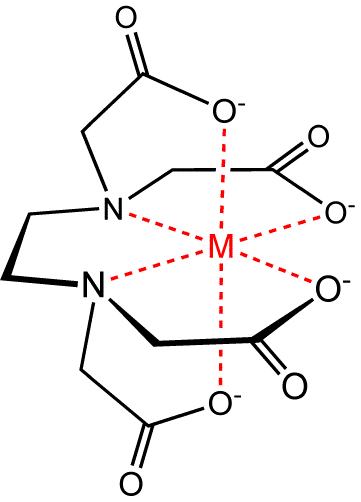Thanks, I guess preferential crystallisation is the key. I'll do a little bit of research on that.
nj:bartel, here's a picture of one of the enantiomers (Let M be Co)

If you imagine the mirror image of this enantiomer, it would be the one that has (looking from this angle) the front nitrogen atom bonded to an acetate which would be bonded to the top of the complex (the one in the picture in bonded to the bottom), and the back nitrogen atom bonded to an acetate which would be bonded to the bottom of the complex (the one in the picture is bonded to the top).
This may sound quite difficult to understand, but the the easi est way to see it is: draw the mirror image of the complex of the picture, and turning it around in all the ways that you can imagine, convince youself that they're not the same complex.